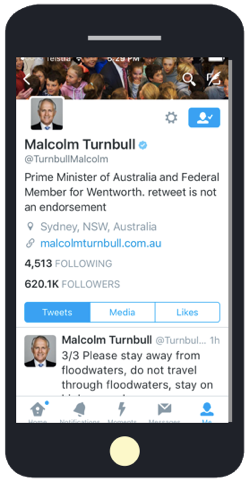What is Personal Branding?
Personal branding isn’t new. As a matter of fact, the concept of personal branding has been around for many years. Nonetheless, it’s only been over the past seven years or so that it has gained the recognition it rightfully deserves. Personal branding is now regarded as a genuine and effective method to increase one’s own personal brand equity.
What is personal brand equity?
In the context of personal branding, brand equity is the extent to which our own personal value is increased, in comparison to our competitors. Expressed another way, personal brand equity can be regarded as our own personal ‘over and above employability worth’. Not surprisingly, strong brand equity often leads to better employment opportunities, as well as superior income-earning capacity.
The fundamental philosophy here is, the more value we can offer employers, the more valuable we become.
Brand equity doesn’t develop by itself
The process of building personal brand equity is no different to developing brand equity for a company’s goods or services. First, we need to realise that building anything good – including our personal brand – takes time, commitment and hard work.
The next step in developing a strong personal brand is to identify our own differential advantages. These are the skills and attributes, which set us apart from our direct competitors. Once identified, we then need to deliver these value added benefits to our target audience, time and time again.
Building a trusted and respected reputation
Whether we realise it or not, we all have a reputation. It’s just that some people have a better reputation than others. In light of this, one of the primary objectives behind personal branding is that we cement ourselves a superior reputation within our respective industry.
The only time you realise you have a reputation is when you fail to live up to it.
We most certainly don’t want people thinking of us in a negative context. For example, he’s always late; she’s unreliable; he charges way too much; she’s all talk, no action; he makes promises but swiftly breaks them; or she gets the job done quickly, but the quality of her work is dreadful.
This is why developing a reputation for delivering excellence is so vitally important. Thus, personal branding is not about how quickly we can complete a task, but more importantly how well we do every job we undertake. It’s also paramount to build a reputation as a person who delivers upon the promises they make.
Promoting your personal brand
You never get a second chance to make a good first impression. With this in mind, a well-executed personal branding strategy should reflect and promote your own differential advantages, including your values, knowledge and capabilities.
Remember, promoting your personal brand shouldn’t be confined to online and social technologies. Promotion should include traditional communications vehicles, such as your resume, cover letters and business cards. Even if you’re currently unemployed, there’s nothing stopping you from designing and distributing business cards to prospective employers. Engage any medium that is capable of helping you to:
- Make a memorable and lasting first impression
- Increase your visibility within your industry
- Showcase that you are an expert in your field
- Demonstrate your creativity
- Provide a snapshot of your knowledge and abilities
- Supply information that sets you apart from others.
Getting your name out there
Thanks to social media and the availability of affordable websites, it’s never been easier to establish your own online personal brand. Many celebrities, sports stars, public figures and politicians, have forged themselves high-profile personal brands.
Australia’s Prime Minister, Malcolm Turnbull, is a good example. Visit Mr Turnbull’s Twitter profile, @TurnbullMalcolm, and you’ll see he’ll be tweeting daily. Of course, with Australia’s federal election rapidly approaching, we’ll see the PM intensifying his social media activity. After all, his ability to remain Prime Minister of Australia depends upon the success of his personal brand.
Keeping a finger on the technological pulse!
It is important to remember that today’s technological environment is fast-paced and rapidly changing. Staying abreast of new and emerging communication technologies can give you the upper hand. While in theory this sounds simple enough, in practice it can be surprisingly difficult. To illustrate, consider the following:

At the time of publishing this article, Malcolm Turnbull had 620,000 Twitter followers. Can you imagine what this number would grow to, if the PM’s public relations team decided to leverage Periscope.tv?
Personal branding isn’t set and forget
Irrespective of the method(s) you choose to promote your personal brand, there’s one final thing to remember:
To be successful in anything these days requires liberal doses of effort. Personal branding is no different. Spending the time to make sure that the information you provide is current and of a high professional standard, will prove to be a wise investment.
If you decide to capitalise upon the popularity of social media, don’t just share articles that others have written. Spend time writing your own content marketing material, as well. Not only will this give you a unique blend of content to share, it’ll also enable you to proudly showcase your capabilities to your target audience.

